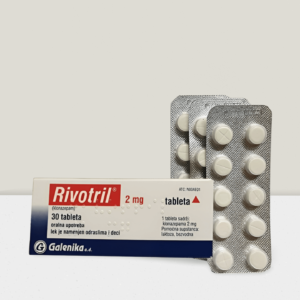The quality of our sleep has a direct impact on our general health and well-being. But not everyone is enthusiastic about working out to get a better night’s sleep. Luckily, there are several easy and efficient methods to improve the quality of your slumber. We’ll look at useful advice in this blog post to assist you resolve your sleep problems without the need for workouts. And never forget to check our Sleeping Quick Fix for more comprehensive options.
1. Create a consistent sleep schedule.
Establishing a consistent sleep routine is one of the most effective strategies to improve your sleep. Try to go to bed and wake up at the same time every day, including weekends. This helps to regulate your body’s internal clock, making it simpler to sleep and wake up normally.
2. Establish a Relaxing Bedtime Routine.
Creating a relaxing pre-sleep routine might indicate to your body that it’s time to relax. This could include reading a book, having a warm bath, or practicing relaxation techniques like deep breathing or meditation. Avoid stimulating activities such as watching television or using electronic gadgets, as these can interfere with your ability to fall asleep.

3. Optimize Your Sleep Environment.
Your bedroom atmosphere greatly influences the quality of your sleep. Make sure the room is cool, dark, and silent. Invest in a comfy mattress and pillows that provide adequate support. If outside factors are disturbing your sleep, consider employing blackout curtains, earplugs, or a white noise machine.
4. Be mindful of your diet and hydration.
What you eat and drink might have a huge impact on your sleep. Avoid caffeine and nicotine close to bedtime because they are stimulants that can keep you awake. If you are hungry before bed, choose a light, healthful snack. Additionally, avoid drinking too many fluids in the evening to decrease midnight awakenings due to the urge to use the restroom.
5. Limit daytime naps.
While brief naps are healthy, taking long or inconsistent naps during the day can harm your nocturnal sleep. If you need to nap, try to keep it to 20-30 minutes and avoid sleeping late in the afternoon.
6. Manage Stress and Anxiety.
Stress and worry are common causes of sleep disturbances. Finding appropriate stress-management strategies can greatly enhance your sleep quality. Mindfulness, meditation, and journaling are all techniques that might help you relax. If stress and anxiety persist, consult a mental health practitioner.
7. Exposure to natural light
Natural light exposure during the day can assist manage your sleep-wake cycle. Try to spend time outside in natural sunlight, especially in the morning. If you can’t get outside, use a light therapy box to replicate natural light.

8. Avoid heavy meals and alcohol before bedtime.
Eating a large dinner or consuming alcohol late in the evening can disturb your sleep. Heavy meals might induce pain and indigestion, whereas alcohol may make you tired at first but disrupt your sleep pattern later in the night. Aim to finish your meal at least two to three hours before bedtime.
9. Use technology wisely.
While it is advisable to avoid screens before bed, some apps and devices can help you sleep better. White noise and guided meditation apps, for example, can help to create a relaxing environment. Blue light filters on devices can also help to lessen the impact of screen time if you need to use electronics before going to bed.
10. Seek Professional Help as Needed.
If you’ve tried a variety of tactics and are still having trouble sleeping, it may be time to seek professional treatment. Insomnia and sleep apnea are two sleep disorders that require medical treatment. Consulting a sleep specialist can give you with personalized advice and treatment alternatives for improving your sleep.
Visit Sleeping Quick Fix for more information and personalized strategies to enhance your sleep without activity. Our extensive resources and expert advice will help you get the restful sleep you deserve.
Also here is a list of products in the given link which can help you attain good sleep.
-
 Clonazepam Rivotril 2mg£34.99 – £149.99
Clonazepam Rivotril 2mg£34.99 – £149.99 -
 Modafinil 200mg£37.99 – £276.99
Modafinil 200mg£37.99 – £276.99 -
 Lorazepam 2mg£39.99 – £329.99
Lorazepam 2mg£39.99 – £329.99 -
 Zopiclone 7.5mg blue£44.99 – £179.99
Zopiclone 7.5mg blue£44.99 – £179.99 -
 Zopiclone 7.5mg white£44.99 – £179.99
Zopiclone 7.5mg white£44.99 – £179.99 -
 Zolpidem 10mg£24.99 – £254.99
Zolpidem 10mg£24.99 – £254.99
